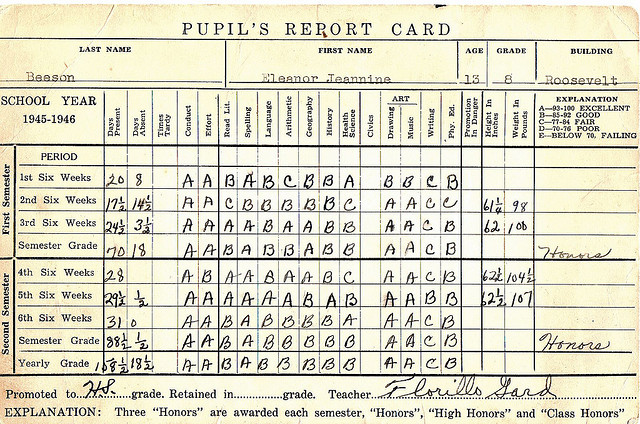A silly game, that was all: merely a little humour to punctuate the pomposity of the weekly Headmaster’s Assembly. As he stood before them in his black-cloaked finery, like some oversized bad-tempered raven, Mr Harrington Spencer – Justice of the Peace, MA(Oxon) and never forget the Oxon – peered over his spectacles at the girls seated below, and offered up his usual recipe of ridiculous regulations and patronising platitudes.
Never a man to suffer disrespect gladly, the interruption of his monologue by the tinkling of a mobile phone did not, as one might imagine, go down well. His evil gaze scanned the rows of Mitchell’s, the house whose girls sat in the front corner of the hall, intent on identifying the culprit. “Would the girl responsible please…”
The “…identify herself” section of his instruction went unheard, as the second call of the day rang out somewhere in the vicinity of Pearson’s, the house a little further to the left – immediately echoed by a shrill tone from Dean’s, and then from every quarter of the room a cacophony of incoming calls drowned out only by the laughter of the assembled girls, delighting in their carefully planned rebellion.
“Stop it… stop it… STOP IT NOW!” Not the most authoritative public statement from the master of all he was supposed to survey – the rising note of panic in his voice merely adding to the hysteria. Silence, he therefore determined, was the only option – standing, arms folded, until the revolution died down and calm slowly returned to his domain, punctuated only by the occasional uncontrolled giggle.
“How very… enterprising of you all,” he finally commented. “No doubt the shares of the telephone companies will be soaring on the stock exchange this morning with all of their extra revenue.” Had he expected laughter in response to his attempted witticism, he’d have been sorely disappointed. “And maybe those of you who do have mobiles might use them at morning break to inform their parents that the entire school will be held back for thirty minutes this evening. You will sit here in silence, and a detention will be placed on each of your school records. Oh, and please do turn off your phones: the owner of the next one to ring will be caned.”
He waited for a minute, as girls fumbled in blazer pockets to ensure their personal safety, and then continued: “Now, where were we? Ah yes: we were about to sing hymn number 184.”
You knew, even then, that it was bound to happen. Fate, dragging one of their number towards the abyss, chose its moment carefully after a few minutes of telephonic silence, pouncing just as the head prefect was reciting the list of the week’s academic awards: “A distinction to Sarah Crawley of Upper Four A in English, a merit to…”
To whom was drowned out by the phone’s chimes, quickly silenced as three hundred pairs of eyes telescoped in on the middle right-hand side of the hall.
“Would the girl whose phone just rang please stand.”
I mean, would you? Knowing the consequences?
“I’m waiting…”
And would be doing so for a long time, it seemed.
“…and if the girl responsible is too cowardly to own up, then the whole of her house will stay behind in detention for thirty minutes every night next week, in addition to our appointment this evening.”
So, slowly, unsteadily, she rose to her feet, red-faced and trembling. Gasps from those closest; queries from those furthest away, half-rising to their feet to get a clearer view of the condemned: “Who is it?” “Who was it?” “Elizabeth?” “Can’t be!” “Elizabeth Linley!” “OMG…!”
“Miss Linley. I’m really rather surprised, and not a little disappointed in you.” In a girl more used to the library than the detention room. In a girl whose elder sister had been head prefect just the year before. In a girl who, even as she stood amongst them, trembling hands held for comfort by her neighbours, looked as though she might be about to cry.
“Go and stand outside my study facing the wall, Miss Linley. I shall be with you in a few minutes’ time.”
She paused for a moment, as if too stunned to comprehend the order – then stumbled out of her row, half helped by and half falling over the girls that sat between her and the aisle, before beginning her long, oh-so-lonely walk. To the back of the hall, amidst stares both sympathetic and shocked. Out of the doors, swung open for her so politely and so flamboyantly by the deputy headmaster. And then entirely alone, along the deserted corridor to wait by the very final door, amidst the gloomy silence that fills a school when its pupils are otherwise engaged. To stand in the requisite spot, clenching and unclenching her fists; swallowing hard; biting her lip; shifting from foot to foot then remembering she should be still. And practising the lines for her negotiation.
She heard his footsteps, sharp against the stone floor, from the far end of the corridor – moments before the cacophony of the newly-released pupils followed as they emerged from the hall, frolicking and fighting their way back to their classrooms, the fate of their compatriot far from their minds. She stood straighter still, pressing her nose against the cold paintwork, not wanting to give him any cause for still graver disapproval. The butterflies in her stomach were careering into each other by now, drowned out only by her heart’s frantic drum beat.
He walked behind her – straight past, reaching for the door handle. “I shall see you in a moment, Miss Linley,” and the door closed firmly behind him. More time to wait, dragging it out: “Let me in to plead my innocence, to apologise for my mistake, to try to cling at whatever straws might save me”. Other girls were close by now, en route to their lessons – pointing, giggling nervously yet sharing wry amusement that such a girl would find herself in such a position. And then the door opened, and a disembodied voice boomed ominously from inside, begging no arguments: “Come in…”
She’d been into his office before, of course: when she’d come with her parents to be interviewed for a prized place in the school after doing so well in the entrance exams. When she’d come top of the year, two years ago and again last year: the headmaster did like to congratulate the high-performers in person. But then the chair had been facing his desk, ready for her to take a seat – not moved to the side. And his desktop had been devoid of the long, crook-handled cane which now took pride of place.
“Please, sir, I’m sorry…” He raised a hand to silence her, but her tongue was moving too fast: “I wasn’t part of the earlier stuff… It…”
Quietly, firmly, he interrupted: no negotiation broached here. “I won’t tolerate direct disobedience, Miss Linley, and I’d made myself very clear as to what would happen were another phone to ring. Now, I’d like you to remove your knickers, bend over in front of the desk, lift your skirt and then touch your toes.”
Flight? Fight more? She blinked, and made her silent resolution: “He’s right. I have no choice.” And, in a moment of dismayed clarity: “I deserve it.” Bracing herself, thinking of her big sister’s sterling achievements, not wanting to let her family down even more than she’d already done: “Please: let me brave enough to take it…”
And, to his surprise, she was. Most girls being punished for the first time tended to flinch, to stand, unable to take the shocking strokes. But Elizabeth? Goodness, but these were hard cuts – each parallel stripe delivered with a high backswing and a cruel flick of his wrist, the blow echoing around the room. Yet the girl stayed still, absorbing the shock and pain as if a veteran in this situation.
She was crying when she stood afterwards, as she adjusted her uniform: wiping the tears away with the back of her hand, as if she hoped he wouldn’t notice. But he did, of course – even if he’d keep his praise for her pluck for later, to share in the common room over morning coffee. For now, there was the final curt warning that she should, must learn from the experience and never repeat it, and the sharp dismissal: “I think you should be in Double History, isn’t that right? Don’t dally on your way. I shall check with Mr Franklin to make sure you reached his class on time.”
On time, that was, other than for leaning against the wall outside the girls’ changing room and finally letting herself dissolve. What had it been: a mere half hour to turn her from a paragon of apparent virtue to a girl whose record would forever be tarnished? The pain, too – oh, how it had hurt. Oh, how it still hurt – unimaginably, unbearably so.
And how it would hurt to knock on that door and walk in – ashamed – to that classroom, to the curious stares of her pupils; to field their questions, to try to shrug off their hugs (“because I’m OK, really I am”) and to make it through the day. Until she could run home and hide – and pray that her family would never find out…






Enquiring minds need to know what excuse the girl was going to offer and why the silly creature didn’t turn it off when the entire school was told to!!!!
I do enjoy your school stories :-)